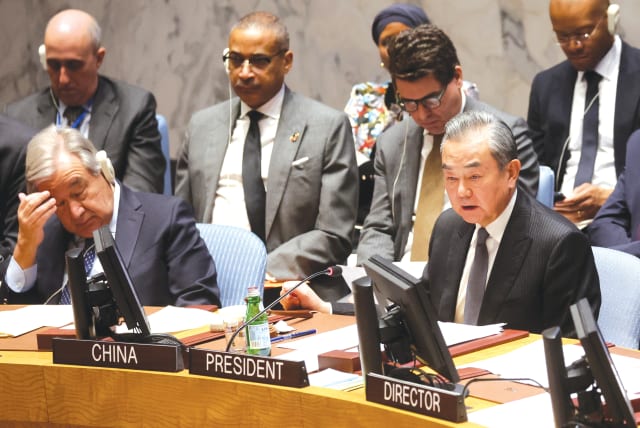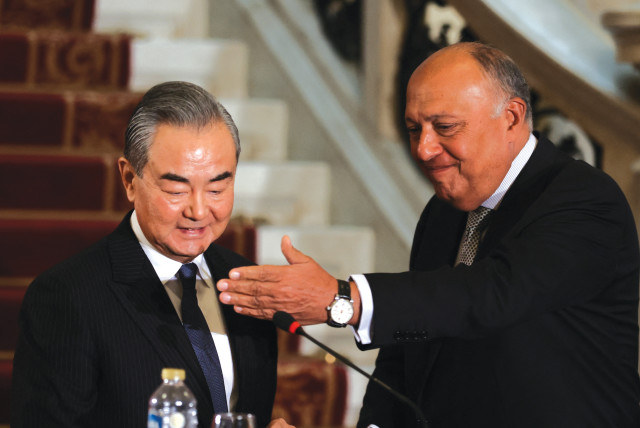Iran able to 'handle situation well,' spare Middle East more tension, China's foreign minister says

Wang also said he noted Iran had described its actions as limited and carried out in self-defense.
China said it believed Iran could "handle the situation well and spare the region further turmoil" while safeguarding its sovereignty and dignity, referring to an attack on Iran's embassy in Syria and its retaliatory strike over the weekend.
Chinese Foreign Minister Wang Yi told his Iranian counterpart Hossein Amir-Abdollahian via a phone call on Monday that China appreciated Iran's emphasis on not targeting regional and neighboring countries, according to the official Xinhua news agency on Tuesday.
Wang also said he noted Iran had described its actions as limited and carried out in self-defense. China strongly condemns and resolutely opposed the embassy attack, and calls the incident "unacceptable," Wang said.
Regional tensions
After briefing Wang on Iran's position, Amir-Abdollahian told Wang that Iran is aware of the regional tensions, is willing to exercise restraint and has no intention of further escalations.
Tensions are high in the Middle East as Israeli military has pledged response to Iran's attack, and several countries called for restraint. Since the Saturday night missile attack, numerous countries have summoned the Iranian ambassadors.
Wang also spoke with Saudi Arabia's foreign minister the same day, Xinhua said, stating that China is willing to work with Riyadh to avoid further escalation in the Middle East.
Foreign minister Faisal bin Farhan Al Saud said that Saudi Arabia "highly expects" China to play an active and important role in that regard, and that his country is willing to strengthen communication and coordination with China to promote an immediate and unconditional ceasefire in Gaza.
Since the war in Gaza began in October, clashes have erupted between Israel and Iran-aligned groups in Lebanon, Syria, Yemen and Iraq.
Faisal said Saudi Arabia "fully trusts" China, and is willing to push for the sustainable development of bilateral cooperation, according to Xinhua.
Jerusalem Post Store
`; document.getElementById("linkPremium").innerHTML = cont; var divWithLink = document.getElementById("premium-link"); if (divWithLink !== null && divWithLink !== 'undefined') { divWithLink.style.border = "solid 1px #cb0f3e"; divWithLink.style.textAlign = "center"; divWithLink.style.marginBottom = "15px"; divWithLink.style.marginTop = "15px"; divWithLink.style.width = "100%"; divWithLink.style.backgroundColor = "#122952"; divWithLink.style.color = "#ffffff"; divWithLink.style.lineHeight = "1.5"; } } (function (v, i) { });

